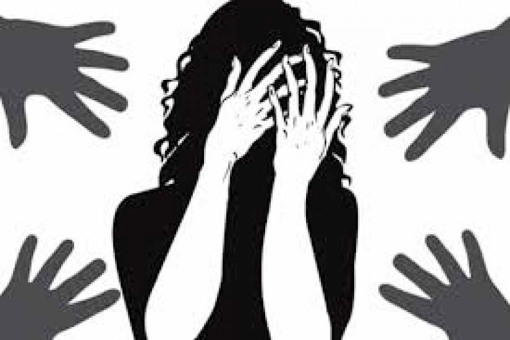- उर्वशी रौतेला 12.25 करोड़ रुपये में रोल्स-रॉयस कलिनन ब्लैक बैज खरीदने वाली पहली आउटसाइडर इंडियन एक्ट्रेस बन गई हैं।
- Urvashi Rautela becomes the first-ever outsider Indian actress to buy Rolls-Royce Cullinan Black Badge worth 12.25 crores!
- 'मेरे हसबैंड की बीवी' सिनेमाघरों में आ चुकी है, लोगों को पसंद आ रहा है ये लव सर्कल
- Mere Husband Ki Biwi Opens Up To Great Word Of Mouth Upon Release, Receives Rave Reviews From Audiences and Critics
- Jannat Zubair to Kriti Sanon: Actresses who are also entrepreneurs
Address gender-based violence for adolescent well-being: Dasra

• The organization, along with partners, highlighted the severe impact of gender-based violence on sexual reproductive health and rights of adolescent girls
• “20% of adolescent girls have experienced physical violence. 33% of adolescent married girls have experienced violence from their husbands. 88% of child victims are 12-18-year-old girls,” tweeted UNICEF India during the tweetchat
Ranchi, December ,2020: Dasra, a leading philanthropic organization, has observed the internationally recognized, 16 Days of Activism against Gender-Based Violence, to highlight the severe impact gender-based violence can have on the sexual and reproductive health rights of adolescent girls.
The 16 Days of Activism against Gender-Based Violence is an annual international campaign that kicks off on 25 November, the International Day for the Elimination of Violence against Women, and runs until 10 December, Human Rights Day.
The global theme for this year is, ‘Orange the World: Fund, Respond, Prevent, Collect!’. It is used as an organizing strategy by individuals and organizations around the world to call for the prevention and elimination of violence against women and girls.
As a part of the 16 days of activism, Dasra organized a Tweet Chat, on December 4, 2020, with some leading organizations working for adolescent well-being including UNICEF India, Love Matters India, Yuvaa, Gender at Work, and Pluc TV. The organizations deliberated upon the critical linkages between gender-based violence and sexual reproductive health and rights.
In response to these rising concerns around gender-based violence, Dasra hosted a podcast in partnership with Srilekha Chakraborty, a research scholar working on the issues of gender and sexuality amongst Adivasi girls, to discuss the lived experiences of young girls and identify possible solutions. Along with ground-zero stories the podcast also saw thought-provoking discussions around gender-based violence.
According to United Nations Population Fund- “Gender-based violence undermines the health, dignity, security and autonomy of its victims, yet it remains shrouded in a culture of silence. Victims of violence can suffer sexual and reproductive health consequences, including forced and unwanted pregnancies, unsafe abortions, traumatic fistula, sexually transmitted infections including HIV, and even death.”
“It is important to look at the needs, rights and aspirations of adolescent girls holistically and acknowledge the intrinsic linkages between gender-based violence and sexual reproductive health and rights. And along with this focus on awareness, agency building comes the tools and ability to affect change in oneself, family and community, including addressing gender equity and gender violence.
We have to continue keeping an eye on ensuring that the girls and women are at the centre of identifying issues, developing solutions and driving the agenda with organizations being facilitators in the process.”saidShailja Mehta, Associate Director, Dasra while sharing her thoughts on the subject.
While discussing the linkages between gender-based violence and sexual reproductive health and rights of teenage girls, UNICEF India, Love Matters India, Yuvaa, Gender at Work, and Pluc TV shared some findings, trends, and insights.“20% of adolescent girls have experienced physical violence.
33% of adolescent married girls have experienced violence from their husbands. 88% of child victims are 12-18-year-old girls. These are India numbers,” tweeted UNICEF India,while talking about this deep-rooted practice of gender-based violence.
A survey of 122 NGO’s shows that 85% of them reported a rapid increase in violence against women and girls between March – September 2020, after the implementation of the first of many nation-wide lockdowns (UN Trust Fund to End Violence Against Women report of 2020).
Similarly, The National Commission of Women (NCW) received 13,410 complaints of crimes against women between March – September 2020, of which 4,350 were domestic violence. Also, according to Dasra’s ‘Lost in Lockdown’ reportii, 24.5 % of organizations working with adolescent girls witnessed an increase in violence against them during the COVID-19 pandemic. The data, quite evidently, suggests that there is an increased amount of violence against women since the Covid-19 pandemic.
It is also important to note here that one of the gravest threats to adolescent girls in Jharkhand is teenage pregnancy, with all its health and the socio-economic implications. As per the NFHS-4, Jharkhand ranks fifth in India for teen pregnancies with a state-wide average of 12% – a number much higher than the national average of 8%.
Similarly, the state ranks third in terms of child marriages, just after its neighbors West Bengal and Bihar. With pressure from lockdown-induced gender-based violence, these numbers could go further up and lead to thousands of girls becoming deprived of opportunities.
In the hour-long tweet chat Dasra and the organizations discussed the various forms of gender-based violence, the linkage between sexual and reproductive health rights and gender-based violence, how can peer learning and youth advocacy help combat the two and finally how various stakeholders can come together to bring about systemic changes.
The conversation was very insightful, engaging and solution-oriented. It saw the participation from other organizations like Missing and ICRW Asia, along with individual advocates of the cause.
Perpetrators of gender-based violence often restrict young women from accessing critical sexual reproductive health (SRH) information and services as a means of control or as a result of neglect. This lack of knowledge and access puts them at increased risk for sexually transmitted infections (STI), including HIV, unwanted pregnancies and also resulting in reproductive coercion (Denied access to birth control and denied the ability to make their own medical decisions). All these implications have long lasting physical and mental health consequences for women.
Gender-based violence is increasingly being recognized as a major public health concern that violates the human rights of thousands of women and young girls and negatively affects their health, including their sexual and reproductive health.
Concern around these issues continue to rise as the COVID-19 pandemic has confined thousands of women and young girls to their homes due to the lockdown, leading to sharp increases in incidences of Gender Based Violence. Additionally, blaming the victim rather than the perpetrator is very widely observed in suchcases.
While talking about gender-based violence Jackson Katz, an American educator and author, calls out victim-blaming and further adds that our whole cognitive structure is set up to ask questions about women and women’s choices and what they’re doing, thinking, wearing. Violence and injustice against women and girls is not just devastating for them but for society at large. Any form of violence is detrimental to the creation of a sustainable society.


